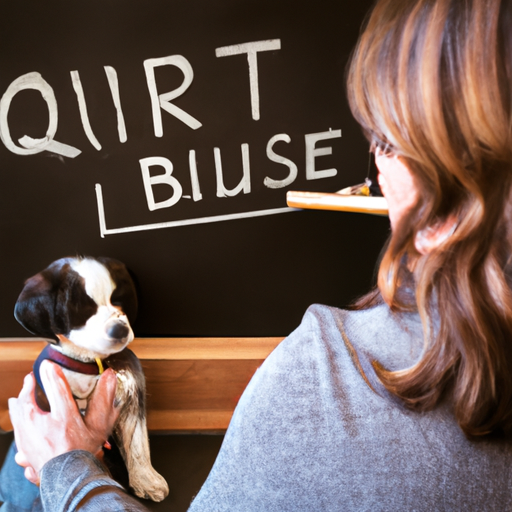A puppy’s bark can be a delightful sound, an adorable declaration of their presence in your life. Yet, when the barking becomes incessant, it can quickly evolve from sweet to a cause for concern. If you’re struggling with excessive barking from your furry friend, don’t fret. Here’s a step-by-step guide to help you understand why your puppy may be barking and how you can help them find their quiet voice.
Understanding Why Puppies Bark
Before you can effectively curb your puppy’s barking, it’s crucial to understand why they’re barking in the first place. Barking is a form of communication for dogs, and puppies may bark for various reasons:
- Attention-seeking: Puppies often bark when they want something, be it your attention, food, or toys.
- Fear or anxiety: If your puppy feels threatened or anxious, they may bark as a defense mechanism.
- Boredom: A bored puppy can become a noisy one. They may bark to amuse themselves or express their frustration.
Training Your Puppy Not to Bark
Training a puppy not to bark involves consistency, patience, and positive reinforcement. Here are some steps you can take:
- Ignore the barking: When your puppy barks for attention, don’t respond. Wait until they stop barking to give them attention or rewards.
- Use a calm voice: When you do speak to your puppy, use a calm, low voice. High-pitched, loud, or frantic voices can incite more barking.
- Reward quiet behavior: When your puppy is quiet, particularly in situations they usually bark, reward them with a treat or praise.
Developing a Consistent Routine
A consistent routine can provide a sense of security for your puppy, reducing anxiety and, in turn, excessive barking. This routine could include:
- Regular feeding times
- Consistent walk or outdoor playtimes
- Regular bedtime
Providing Adequate Physical and Mental Stimulation
A bored puppy is often a noisy puppy. Ensuring that your puppy has plenty of physical exercise and mental stimulation can help reduce barking. This could include:
- Daily walks
- Playtimes with toys
- Training sessions
Using Training Tools Wisely
There are several training tools available that can aid in curbing excessive barking. These include:
- Bark collars: These devices deter barking by emitting a sound, vibration, or scent when the dog barks.
- Clicker training: A clicker can be a powerful tool for training your puppy to stop barking. The clicker is used to mark the desired behavior (quiet) and is followed by a reward.
Remember, any training tool should be used as a part of a comprehensive training program and not as a standalone solution.
Considering Professional Help
If you’ve tried these techniques, and your puppy is still barking excessively, it might be time to seek professional help. A professional dog trainer or a veterinary behaviorist can provide tailored strategies for managing your puppy’s barking.
FAQ
Q: When should I start training my puppy not to bark?
A: You can start training your puppy as soon as you bring them home. It’s always easier to prevent a behavior than to change it later.
Q: Is it ever okay for my puppy to bark?
A: Yes, barking is a natural behavior for dogs and can be a way for them to communicate. The goal is to manage excessive or inappropriate barking, not to stop all barking.
Q: Should I punish my puppy for barking?
A: Punishment is not the most effective way to stop your puppy from barking. It can often lead to fear or anxiety, which can actually increase barking. Positive reinforcement is the best approach.
Remember, every puppy is unique, and what works for one might not work for another. The key is to be patient and consistent. With time and effort, you can help your puppy learn to use their “inside voice.”



